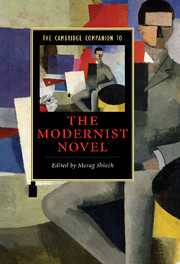5 - The legacies of modernism
Published online by Cambridge University Press: 28 July 2007
Summary
The fact is that every writer creates his own precursors. His work modifies our conception of the past, as it will modify the future.
Jorge Luis BorgesThe question of the legacies of modernist fiction for the generations of writers that followed could lead us in a number of different directions. As perspectives on the literary and cultural history of the past century shift and alter, maps will be differently drawn. In particular, the literary-historical narrative in which 'high modernism' gave way (after the extreme experiment of James Joyce’s Finnegans Wake (1939) and with the coming of the Second World War) to postwar realism, and cosmopolitanism to parochialism, requires, and is receiving, substantial revision. The 'realisms' of many mid-twentieth century writers and beyond are beginning to look not only more interesting and more complex, but closer to the 'modernisms' that they are conventionally held to have displaced. There is much new work to be undertaken on this and related questions. The focus of this chapter is a little different, in that it explores the legacies of modernism as a question of direct, rather than diffuse, influences. It discusses writers of the mid-twentieth century (including B. S. Johnson, Saul Bellow and Doris Lessing) and their relationship to their modernist predecessors, but its primary focus is on the ways in which recent and contemporary novelists (including Paul Auster, Alan Hollinghurst, Don DeLillo, Ian McEwan, Salman Rushdie, Jeanette Winterson, Zadie Smith, Michael Cunningham and Colm Tóibín) are engaging with modernist fiction and its creators.
- Type
- Chapter
- Information
- The Cambridge Companion to the Modernist Novel , pp. 82 - 98Publisher: Cambridge University PressPrint publication year: 2007
- 9
- Cited by



